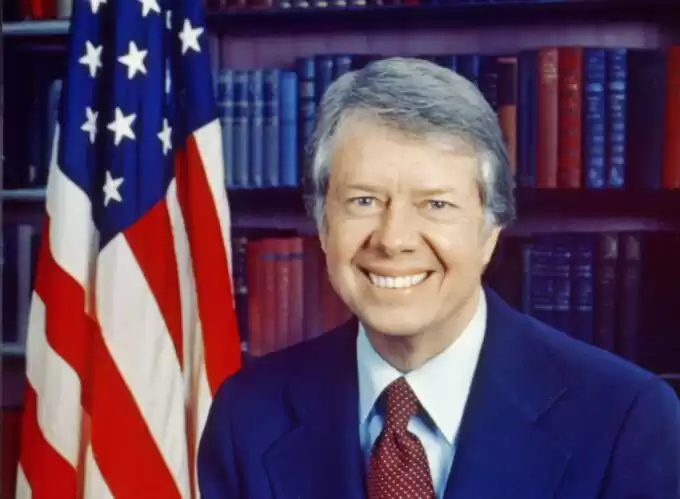"Jimmy Carter's Role as the Link between Nixon and Reagan"
1976 Election: Debating whether to vote for Jimmy Carter or not.
On Election Day in 1976, I found myself standing outside a polling station in suburban Maryland, surrounded by campaign literature for Jimmy Carter, the Democratic presidential candidate. Despite the presence of enthusiastic supporters, I was still undecided about whether or not to vote for him. My reluctance stemmed from the fact that although I didn't want Gerald Ford, the Republican candidate, to remain in the White House, I also didn't feel a strong alignment with Carter's political beliefs.
Carter had his cool moments, like quoting Bob Dylan and associating with musicians like Willie Nelson and the Allman Brothers. He even expressed support for amnesty for those who evaded the military draft during the Vietnam War. However, I believed that his core political philosophy relied too heavily on the idea that the private sector could solve issues of inequality and racism. Essentially, he believed that capitalism, the very system responsible for these problems, could also provide the solutions. This belief was clearly articulated in his 1978 State of the Union address when he stated that government could not solve our problems or define our goals. This philosophy would later be known as neoliberalism, which was fully embraced by the Reagan and Thatcher governments.
As time went on and Bill Clinton assumed the presidency, the economic inequality that had been exacerbated under Reagan continued to grow. The implementation of the North American Free Trade Agreement (NAFTA) and the dismantling of the Aid to Families with Dependent Children (AFDC) program further widened the gap between the rich and the poor. This inequality was starkly evident in the increasing number of people without homes across the nation.
Additionally, Carter's opposition to a national health insurance system went against the growing support for such a program within the Democratic Party. His energy policy, which included expanding coal use and deregulating natural gas, contradicted his concerns about dependence on foreign fuels. In fact, in 1980, he introduced the Carter Doctrine, which asserted the United States' determination to use military force to protect its interests in the Persian Gulf region. This doctrine remains a cornerstone of US policy to this day.
Carter's foreign policy was heavily influenced by Zbigniew Brzezinski, who played a key role in establishing Operation Cyclone, a CIA program that armed and financed the Afghan mujahideen in Afghanistan. This decision would later have far-reaching consequences and provoke significant backlash. Carter also supported the Indonesian military's repression of its own population and the massacre of the East Timorese people. Although he initially provided arms to the Somoza dictatorship in Nicaragua, he eventually withdrew military aid and appointed an ambassador to persuade the dictator to step down, ultimately allowing the Sandinistas to assume power. However, before this transition, he attempted to organize an invasion to support Somoza. He also continued to provide aid to death squads in El Salvador, despite pleas from Bishop Romero to end it.
Around the same time, a revolution was taking place in Iran. After years of organizing and growing discontent with the US-backed regime of the Shah, Iranians took to the streets in protest. The Shah, who had previously enjoyed unwavering support from the US, was forced to leave Iran in defeat in 1979. Subsequently, a group of Iranians seized the US Embassy in Tehran and held several dozen employees hostage. This hostage crisis dominated US media and the presidential campaign, ultimately leading to the election of Ronald Reagan and the release of the hostages after his inauguration. Abolhassan Banisadr, the democratic socialist president of Iran at the time, claimed that he and Carter's team had negotiated terms for the release, but Reagan's team circumvented the agreement to secure their victory.
Looking back, I believe that Carter's popularity among the counterculture marked the end of a grand-scale leftist movement within that sphere. It was disheartening to witness acidheads defending Reagan and prioritizing personal gain over collective progress. The 1972 campaign of George McGovern was perhaps the closest the counterculture left would come to national electoral involvement. Hunter S. Thompson's lukewarm endorsement of Carter, tinged with cynicism, didn't sway my opinion significantly. It seemed that electoral politics was becoming increasingly corrupt and unappealing.
In the end, I likely did vote for Jimmy Carter in 1976. While he may have been a decent person outside of politics, his actions within the empire were already etched in history.











Comments on "Jimmy Carter's Role as the Link between Nixon and Reagan"